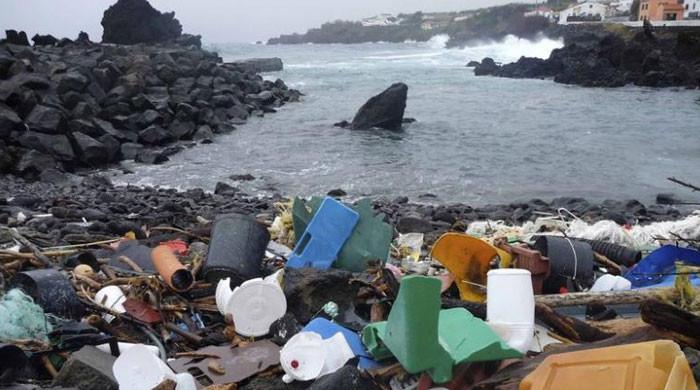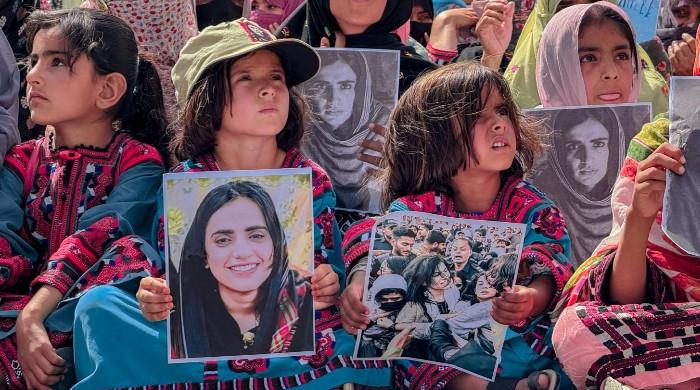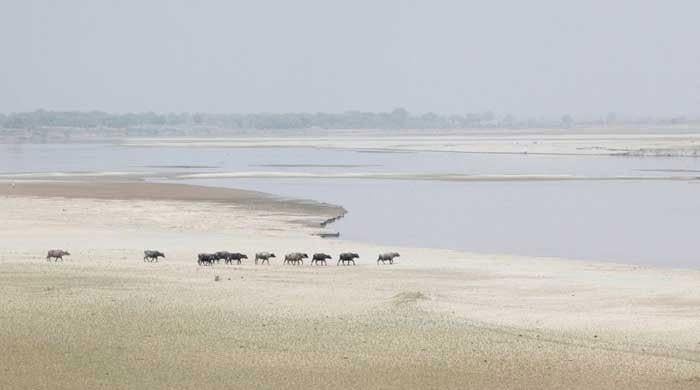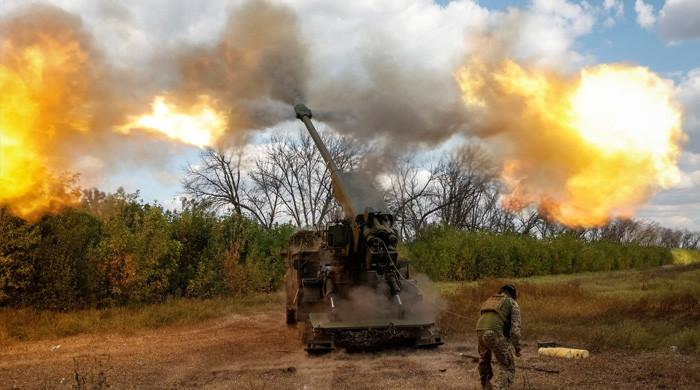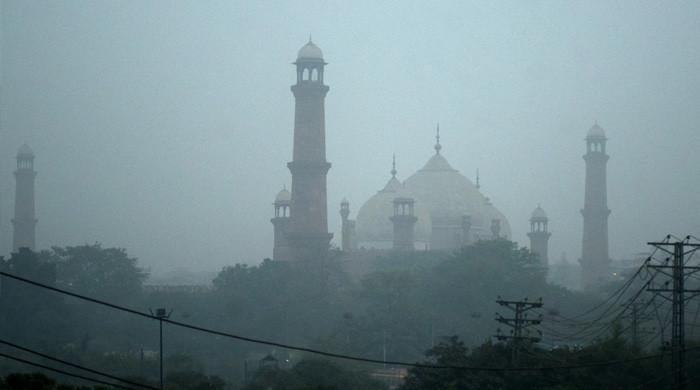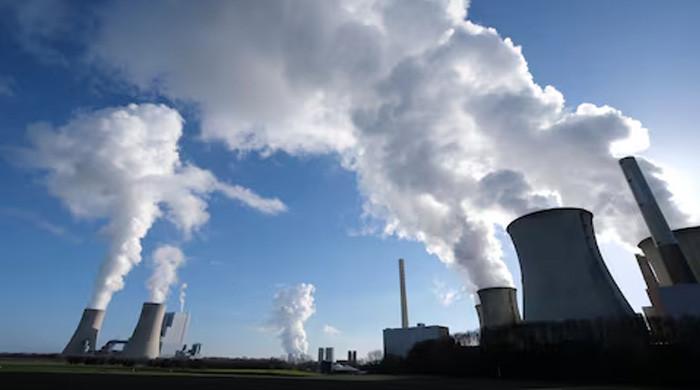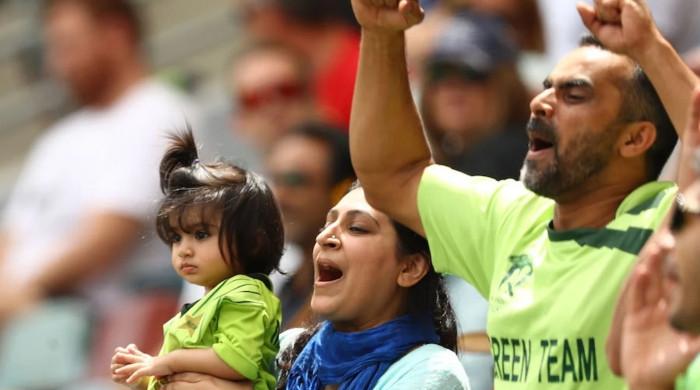Beyond the polls
No messiah from the political elite talked about an exit strategy from the vicious debt circle
February 14, 2024
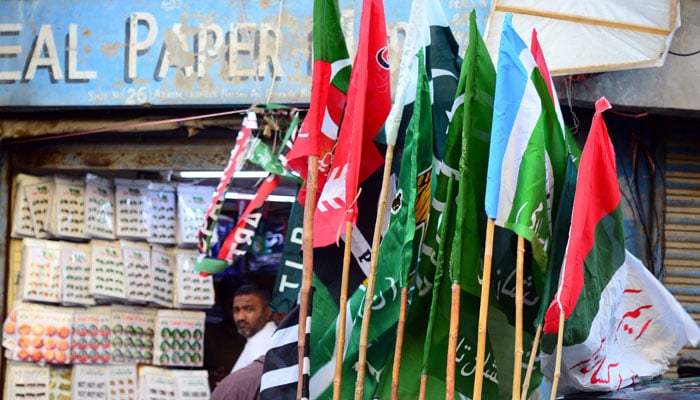
Beyond the tall claims politicians made during their election campaigns lie tough ground realities that public representatives now have to face. During their campaigns, some politicians promised to offer 300 free units to poor households. Others assured their supporters that they would build millions of houses.
PML-N leaders acted like modern monarchs, asking their courtiers what they wanted and declaring then and there that their wishes would be fulfilled. From airports, universities and medical colleges to roads, everything was promised.
But no one bothered to explain how they would accomplish these arduous tasks given the stringent conditions of the IMF and other monetary institutions that Pakistan has to follow. No messiah from the political elite talked about an exit strategy from the vicious circle of the external and internal debt that is the biggest burden on the national exchequer. No leader informed people how much funds would be left in the exchequer after servicing debts, spending on defence, and making payments to independent power producers (IPPs).
All governments have recklessly been borrowing from private banks for some time after accepting IMF conditions that were meant to increase the autonomy of the State Bank of Pakistan (SBP). After witnessing a phenomenal surge in external debt that has already hit the $130 billion mark, the country is now facing an increase in internal borrowings that will have serious consequences for the economy, but no party seems to have an exit strategy from these vicious borrowings.
Oblivious to the country’s financial constraints, the PML-N kept promising to build more roads, flyovers and other projects that largely benefit party leaders and their partners.
The PPP’s election campaigns were also interesting to watch. PPP leaders resorted to pro-people rhetoric but fooled no one. During the last 15 years, people have witnessed how the assets of party leaders and their relatives have increased manifold.
The PPP may not have a single MPA or MNA who is not basking in wealth and luxury while Sindh, where the party has ruled for over 15 years, continues to be in shambles. Millions of homeless people, armies of unemployed young people, and a brigade of malnourished women wait helplessly for their government to do something for them. The PPP did bring some positive changes to the health system but nothing beyond this.
In its election campaigns, the PTI also claimed to improve the economy by broadening the tax net, modernising agriculture and improving industries besides promoting tourism. The party also claimed that it would increase spending on social sectors from the existing 1.0% to 3.0% of the GDP.
But tough questions should follow the ‘party of change’. The PTI promised to serve the people, but in 2018, its government added more to their miseries. In what way did the rise in medicine prices serve the interests of poor patients? What benefits did they get from the Ring Road scandal in Rawalpindi? Did the PTI manage to improve literacy by establishing more schools and colleges? How many universities were set up during the PTI’s rule? Did anyone notice a reduction in children and women’s malnourishment? These are important questions that the party of change will have to ponder over.
What is done cannot be undone. Politicians should now go beyond rhetoric and concentrate on the myriad of problems that the country is facing. The Taliban insurgency is raising its monstrous head again. During the last two years, terror groups carried out hundreds of attacks, targeting both law-enforcement agencies and ordinary citizens. The Islamic State-Khorasan is also reorganising, creating pockets of its influence in Khyber Pakhtunkhwa and Balochistan. Some splintered groups of the defunct TTP are also believed to be active.
Political parties will have to sit together to come up with a concrete plan to tackle the menace of terrorism. Only force will not be enough. The political leadership will have to learn from the destruction of Iraq, Libya, Syria and Sudan. All these states bankrolled proxies and this policy of creating non-state actors boomeranged on them. Today, these states seem to be crumbling. They all seem to have plunged into the abyss of chaos and anarchy.
The use of proxies as a tool of foreign policy has already done unimaginable damage to our country. Pakistan, which did not have a single drug addict during the 1960s, is brimming with the problem of substance abuse. People’s access to lethal weapons is also unimaginably high. This was all because of our involvement in the Afghan Jihad, which is also partly responsible for the rise of the TTP — a group responsible for the killing of over 30,000 Pakistanis besides causing damage to infrastructure worth billions of dollars.
Besides the use of force, quality free education, improvement of schools, the establishment of shelter houses for homeless children, radical changes in syllabus and a comprehensive programme to promote religious harmony are needed to weed out terrorism. Politicians will have to work together to achieve this.
The political elite will also have to understand that the country and the region cannot develop without the normalisation of ties with neighbours. It is unfortunate that when one party tries to engage India in peace dialogue, the other party starts clamouring against such an approach. When the late Benazir Bhutto tried to put past differences aside and reached out to the late Rajiv Gandhi, it was Mian Nawaz Sharif’s people who criticised her and when Mian sahib made efforts to talk to Indian Prime Minister Modi, it was Bilawal Bhutto who raised immature slogans, asserting that Modi’s friend would be considered a traitor.
Politicians had a golden opportunity to normalise ties with India during Imran Khan’s tenure when the country’s powerful quarters appeared amenable to the idea of approaching arch-rival India, but Imran Khan dismissed the idea arrogantly.
A big country like the USSR could not survive after pumping billions of dollars into a non-productive sector. Then how can a country like Pakistan, whose industrial growth is many folds lower than that of the Soviet Union afford an arms race? Such a race could greatly be reduced by normalising ties with India in a dignified way. The restoration of confidence between the two countries could turn Pakistan into a real regional hub enabling the country to earn billions of dollars in transit only.
If democracy has to take firm roots, politicians will have to pledge not to rely on non-democratic forces to come into power. All political parties should get united to oppose the crackdown on political forces. Celebrating undeclared bans on fellow politicians is an imprudent approach, which must be abandoned. They need to respect each other’s mandate and people’s will. They must devise a code of ethics that forbids them to resort to character assassination. It should be political programmes rather than leaders and their families which should be the subject of their debates and arguments.
They should also summon enough courage to openly admit their defeat. Khawaja Saad Rafique, Mustafa Nawaz Khokhar and some other politicians have set a good precedent by admitting their defeats and respecting people’s will. Nawaz Sharif should also admit that the policy of appeasing the powers that be did not work. It rather destroyed the political capital of the PML-N.
The writer is a freelance journalist who can be reached at: [email protected]
Disclaimer: The viewpoints expressed in this piece are the writer's own and don't necessarily reflect Geo.tv's editorial policy.
Originally published in The News




